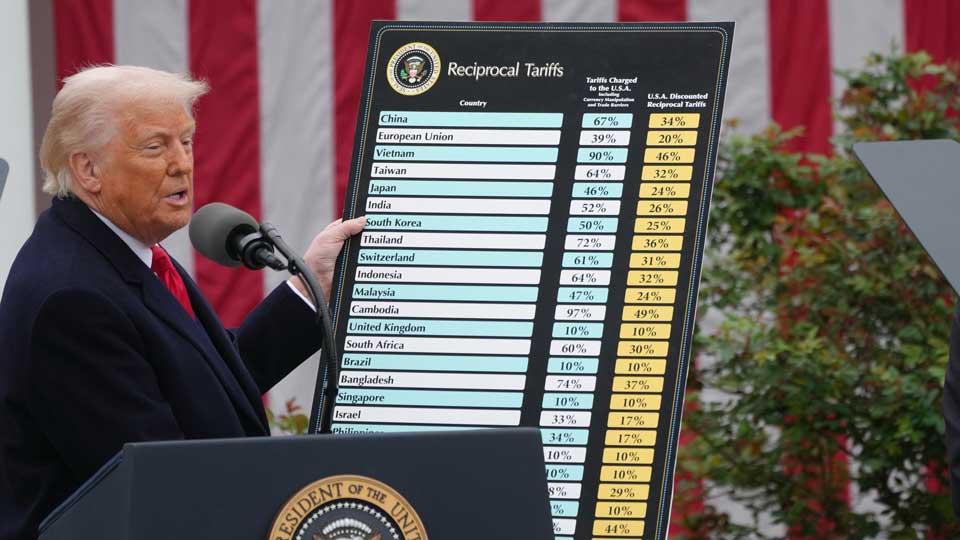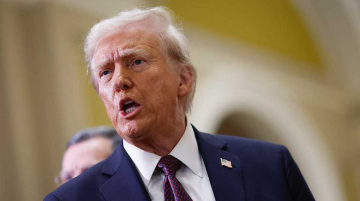
By Lukas Fiala
With markets reeling from U.S. President Donald Trump’s tariff bazooka, economists around the world are seemingly waking up to the new reality of the “Washington Dissensus.” America rejects the very idea of the world it has created, its leadership position within, and the basic principles of macroeconomics. Across the rest of the world, dissent from this heavy-handed approach is growing fast as countries react to what many see as a frankly bonkers approach to economic policy.
What will this period of dissensus mean for the future of global economic leadership and U.S. commitments to Africa and other regions of the Global South?
While the responses of U.S. trading partners are still in their early stages, Trump’s much-touted “liberation day” will certainly impact U.S. influence across key partners and regions. Take, for instance, the Lobito Corridor crossing Angola in the pursuit of securing critical mineral supply chains – a key pillar of the Biden administration’s Africa policy.
Apart from the fact that the current administration has yet to articulate a clear Africa policy, the 32% reciprocal tariff imposed on Angola will probably not help generate an image of the U.S. as a responsible, reliable development partner that can serve as a viable alternative to southern African countries’ growing economic reliance on China.
The sweeping application of a one-size-fits-all policy measure is certainly reminiscent of the hey-days of the “Washington Consensus” associated with a set of free market economic policy prescriptions of the 1980s and 90s.
In contrast to these principles, however, the present period is perhaps best described as a “Washington Dissensus,” because as seen above, there seems to be little coherence between the America First economic policy agenda and other strategic goals such as supply chain resilience, inflation reduction or countering Chinese economic statecraft across the developing world.
Driven by strong “dissent” with Trump’s heavy-handed approach, the flipside of this week’s purported “Liberation Day” is that many governments will look more intensely than ever for alternative trading and development partners and markets. Whether it’s the dismantling of USAID or this latest round of economic disruptions, Chinese academics and analysts are duly aware of just how quickly America First is reshaping Washington’s diplomatic influence and reach around the world.
And yet, it is unclear whether China is truly willing to step in to fill this gap. As we wrote a few months ago, the present moment is certainly a critical juncture for Beijing to assert a claim to leadership and refashion aspects of international order in its own image. But looking beyond the confident rhetoric coming out of Beijing on a number of related topics, it’s difficult to gauge Beijing’s true appetite and ability to foster (a Chinese-led) consensus around key policy issues to reinvigorate global trade and development.
As part of its priority areas, China’s Global Development Initiative (GDI) clearly mentions “enhanc[ing] the “soft connectivity” of policies, rules and standards, promot[ing] unimpeded trade, and maintain[ing] the safety, stability and connectivity of the global industrial and supply chains.”
But when I asked my Chinese counterparts across academia and think tanks in recent months what their government may do in response to this pacing economic fragmentation and whether the GDI will be a component of any potential response, I was often met with vague answers, skepticism, and—sometimes—surprise that the GDI could be connected to such geopolitical questions.
Economics likes to hide behind abstractions, but we all know that this week’s actions will have potentially disastrous consequences for communities worldwide. And similar to the period of structural adjustment, the new “Washington Dissensus” will hit the weakest and most vulnerable the hardest. Whether Beijing has a meaningful response to foster an alternative consensus, however, remains to be seen.
Lukas Fiala is the project head of China Foresight at LSEIDEAS.







